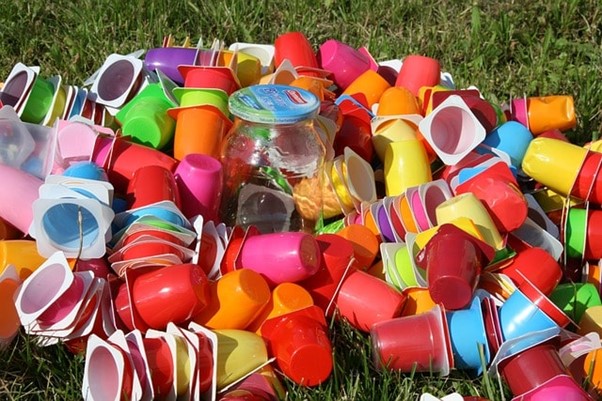Waste collection methods in Australia have developed alongside the country’s industrialisation. Its methods seek to find the safest and most environmentally friendly waste management systems.
Understanding the most common waste collection methods will give both businesses and households a better understanding of waste management in Australia. Knowing this will allow people to make more informed decisions about their required waste collection service.
This blog outlines 8 common waste collection methods. Despite the range discussed below, it is still important to consult a professional waste management company like Cleanway to determine the best method for your specific waste management and collection needs.
Waste Collection Explained
Modern waste collection strategies are shaped through the most recent techniques that the world has adopted in the 21st century. These green waste management services follow the principles of best practices for the environment in order to promote a better and cleaner tomorrow.
These systems are geared towards harnessing new technologies like artificial intelligence and machine learning. However, ethical practices such as recycling, which, in essence, is meant to enhance environmental well-being, are also adopted.
Waste Management Services
Apart from managing generated waste, the goal of waste management services includes finding ways to minimise waste produced in the first place. They also sort what has been deposited for disposal so as to lessen the volume that requires disposal. Typical waste management services include the collection of recyclable items, provision of kerbside bins, management of garden organic waste, and operation of municipal waste management transfer stations.
Cleanway and other Australian rubbish management companies deal with various types of rubbish. The most common include solid waste, e-waste, hazardous waste, food organic waste, garden waste, and organic waste. Liquid waste and solid waste are two of the most common types of waste.
1. Curbside Collection of Waste
This is the most prevalent method for disposing of waste at residences in Australia. Bins are allocated for general waste, recyclables, and green waste.
Local councils take care of the collection and disposal process and often also provide hard waste collection services for infrequently used bulky waste items.
Additionally, this is a type of waste management that can be easily picked up by both businesses and households.
2. Collection of Recyclables
Waste containing paper, cardboard pieces, plastics, glass, metals, etc., is collected with general waste as part of the recycling process.
Some councils have container deposit schemes that allow residents to receive a small rebate for bringing in emptied bottles and cans to specific locations.
That being said, anyone interested in engaging further with recycling should contact a waste management company like Cleanway.
3. Collection of Green Waste
This includes grass clippings, green garden refuse, and small branches that can be mulched and processed into compost to curb landfill waste while promoting sustainable gardening practices.
This is an often neglected type of waste despite the many benefits that it can yield both for the environment and for the economy.
This is because green waste is both easily attainable and easily disposable through natural means.
4. Collection of White Goods
In Australia, it is common for councils to provide services for the disposal of large household items like furniture, old mattresses, and white goods.
This is commonly done once or twice a year, with residents simply placing anything they wish to be taken away on the street outside their homes.
Interested in having your white goods correctly disposed of? Consider contacting Cleanway.
5. Collection of Electronic Waste (E-Waste)
The development in technology has given rise to a multitude of gadgets and devices which has also led to electronic waste.
Old computers, mobile phones, old televisions, and other items emerge as a category of e-waste.
They are accepted by local bodies and waste facilities striving for environmentally safe disposal of materials containing lithium and lead. Safe handling of such components is crucial for the e-waste to be managed wisely.
6. Collection of Commercial and Industrial Waste
Local businesses and industries single-handedly contribute a substantial proportion of waste requiring proper disposal.
E-waste fragmentation is only a fraction within a wider array of specialty services that include everything from bin collections to recycling schedules and even disposing of hazardous materials.
Waste management companies today provide custom services to meet the needs of commercial clients.
7. Collection of Construction and Demolition Waste
The building and construction industry is one of the most significant suppliers of waste, which can range from concrete to metal or even timber and bricks.
Construction and Demolition (C&D) site waste collection services seek to procure materials that can be reused and recycled while preventing the waste from being placed in landfills.
C&D site recycling helps with waste repurposing.
8. Engaging a Waste Management Firm of Your Choice
Those professionals seeking a sustainable way of waste disposal in the most convenient form possible ought to engage a waste management firm like Cleanway.
There are many waste management consideration that we can make effortless.
Thus contacting us eliminates the hassle for households, businesses, and construction sites, gathering waste from these establishments while sorting them within Australia’s stringent regulations.
Conclusion
Understanding the various waste collection methods in Australia is essential for individuals and businesses looking to enhance their waste management practices. By choosing the right method, you can contribute to a more sustainable future while ensuring compliance with local regulations.

